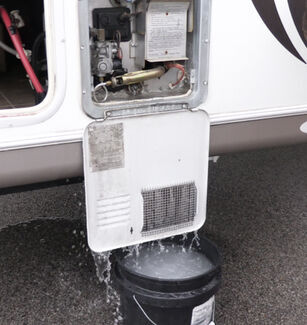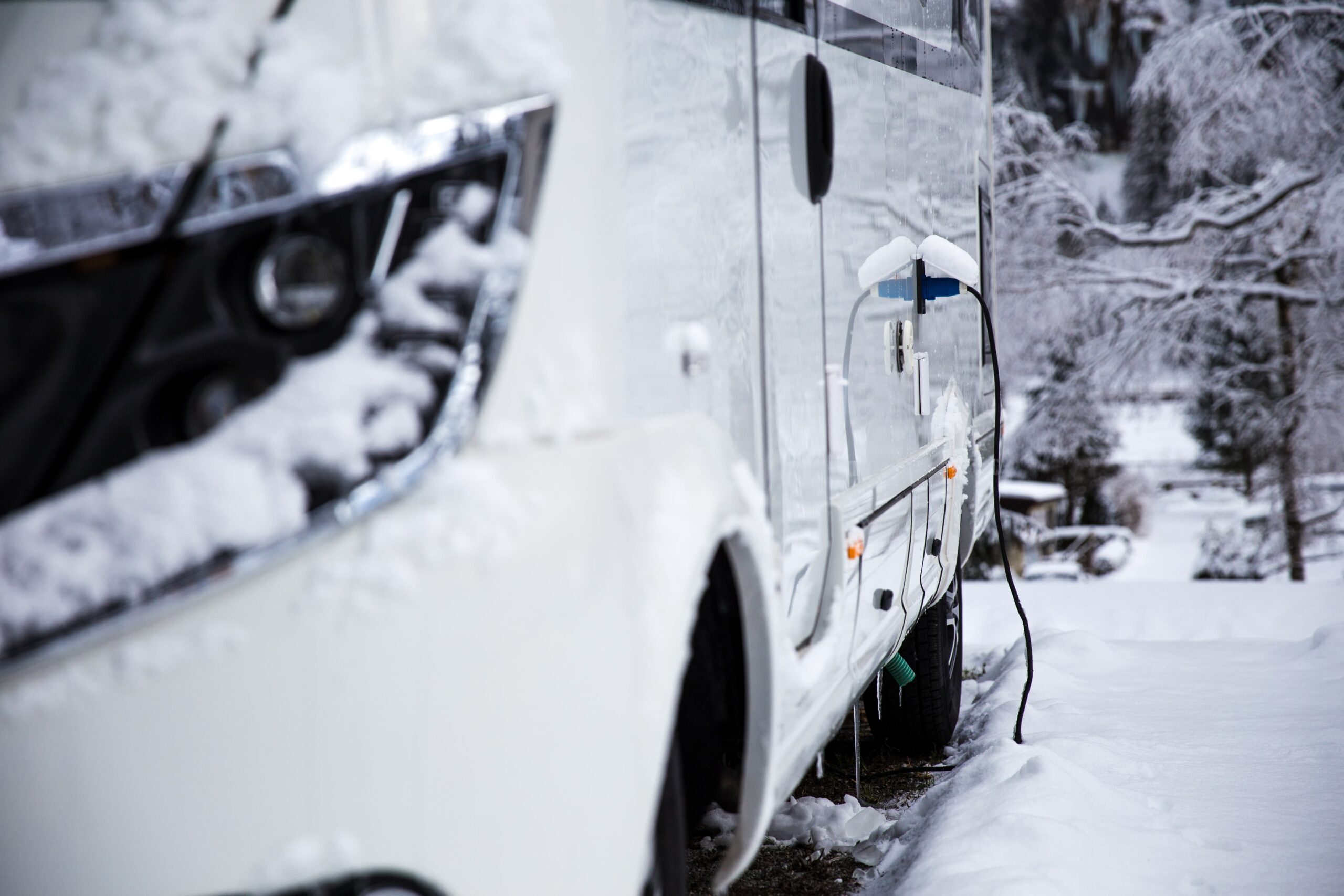Winterizing Your Camper in the Fall: Essential Tips to Protect Your RV This Winter
As the warm days of summer give way to the crisp chill of fall, it’s time to start thinking about preparing your camper for winter. Taking the time to properly winterize your RV in the fall can save you from costly repairs and ensure it’s ready to roll come spring. Here’s a guide to help you get your camper ready for the cold months ahead.
1. Drain and Flush Water Systems
Water left in the pipes, tanks, and water heater can freeze, expand, and cause cracks or damage to your plumbing system. Follow these steps to protect your RV’s water systems:
- Drain the fresh, gray, and black water tanks: Empty all water tanks at designated dump stations and flush them thoroughly.

- Drain the water heater: Make sure it’s completely empty by opening the drain plug and removing any remaining water.
- Blow out the water lines: Use an air compressor to clear out residual water from the pipes. Alternatively, you can use RV antifreeze designed for plumbing systems.
- Add antifreeze: Pour non-toxic RV antifreeze into the water lines, faucets, showerheads, toilet, and P-traps to prevent freezing.
- Do Not Put Antifreeze in Water Heaters: Always drain and blow out the water heater to prevent freezing damage. Adding antifreeze to the water heater can cause issues, so draining is the safest method.
2. Winterizing Essential Appliances in Your RV
As you prepare your RV for winter, don’t forget about those often-overlooked appliances like your refrigerator, washing machine, and dishwasher. Here are some key reminders:
- Refrigerator Ice Makers/Water Dispenser: Drain the water lines leading to your ice maker and water dispenser. Once drained, add non-toxic RV antifreeze to the lines to prevent any freezing.
- Washing Machines: Drain the water from the drum and hoses, then pour a small amount of RV antifreeze into the drum and run a short cycle to push antifreeze through the internal parts.
- Dishwashers: After draining, add non-toxic RV antifreeze to the dishwasher. Run a short rinse cycle to ensure the antifreeze circulates through all water lines and parts.
3. Protect Your Batteries
Batteries can be negatively impacted by freezing temperatures, reducing their lifespan or rendering them unusable by spring.
- Disconnect and remove batteries: Store them in a dry, cool place where they won’t freeze.
- Check battery charge: Charge them fully before storage and check periodically to maintain an optimal charge throughout the winter.
4. Seal All Openings
Cold air, moisture, and pests can find their way into even the smallest openings in your RV. Ensuring a tight seal will keep your camper safe during winter.
- Inspect weather stripping: Check around doors, windows, and vents for cracks or gaps. Replace worn-out seals to block drafts.
- Close roof vents: Secure any roof vents with vent covers or a plastic bag to prevent leaks and cold air from entering.
- Seal exhaust pipes: Cover the exhaust pipes of your furnace or generator to keep out rodents.
5. Clean and Store Your RV
Thoroughly cleaning your camper before storing it can help prevent damage, odors, and pest infestations.
- Wash and wax the exterior: Protect the exterior from rust, dirt, and debris.
- Clean the interior: Vacuum, mop, and wipe down all surfaces, removing any food, crumbs, or perishables that could attract pests.
- Use rodent deterrents: Place mothballs, peppermint oil, or mouse traps inside and around the camper to prevent critters from moving in.
6. Maintain the Tires
Cold weather can cause tires to lose pressure, leading to flat spots or cracks.
- Check tire pressure: Inflate the tires to the manufacturer’s recommended PSI.
- Use tire covers: Protect tires from harsh weather and UV rays with tire covers.

7. Check on Your RV During Winter
If your camper is stored at home or a nearby facility, check on it periodically throughout the winter.
- Inspect for leaks or damage: Look for any signs of water damage, tire deflation, or pests.
- Clear off snow accumulation: If parked outdoors, ensure that heavy snow doesn’t accumulate on the roof, which could cause sagging or leaks.
- Clearer Communication: Radios allow for clearer, faster communication between the driver and spotter, reducing stress in tricky situations.
Final Thoughts
Taking the time to winterize your camper properly in the fall is one of the best investments you can make in protecting your RV. Follow these steps to avoid headaches in the spring and enjoy a worry-free winter knowing your camper is safe from the cold. These tips are just to help you remember key steps, but your manual will have the most accurate and detailed advice for your specific RV model.
At Timberline Campground, we’re here to help make your trip planning effortless. Whether you’re seeking a serene spot for relaxation or thrilling outdoor activities, our campground offers the perfect blend of nature and comfort. Call us today at 515-987-1714 to reserve your spot and start counting down the days until your next RV getaway.

